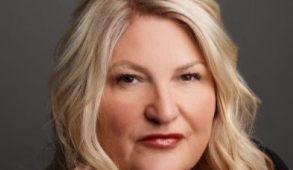News / Framework review promises to slash procurement costs
NHS England’s chief commercial officer Jacqui Rock (pictured) announced the review in a letter to integrated care system procurement leads – making good on a commitment made when the central commercial function was launched in July 2022.
The letter highlights that there a re more than 1,200 frameworks used in the NHS. Frameworks help NHS bodies to buy goods and services from a list of pre-approved suppliers, with agreed terms and conditions and legal protections. They are typically divided up into product or service types, covering everything from x-ray machines to gloves or Microsoft licences. There are more than 400 frameworks in the estates category alone.
re more than 1,200 frameworks used in the NHS. Frameworks help NHS bodies to buy goods and services from a list of pre-approved suppliers, with agreed terms and conditions and legal protections. They are typically divided up into product or service types, covering everything from x-ray machines to gloves or Microsoft licences. There are more than 400 frameworks in the estates category alone.
‘This number means there are variations in cost, product and quality, which makes it hard for the NHS to decipher which frameworks offer best value for money,’ the letter said. ‘This has a direct impact on you and your teams whose time and resource are spent identifying the best route to market.’
The review aims to ‘simplify routes to market for NHS buyers by reducing and consolidating the number of frameworks’. However the letter also claimed there would be benefits for businesses, which will be able to ‘get their products to the frontline at speed and scale, supporting jobs and economic growth across the country’
‘The NHS is already one of the most efficient health services in the world, spending a far lower proportion on admin costs than other comparable countries,’ Ms Rock said. ‘We want to ensure every penny of taxpayers’ money is spent wisely and that is why we are going a step further – the NHS is cutting red tape and simplifying processes, not only so products can get to local services quicker but also at a cheaper cost to the public.’
She added that the moves would save up to £100million for reinvestment in frontline services. NHS England later confirmed these savings would be gained over a three-year period.
Having too many frameworks means it can be confusing for NHS bodies to work out which deals offer the best value for money. There are also charges to suppliers to be on a framework, which will inevitably feed into overall product prices. The savings are expected to come from:
- the NHS leveraging its buying power and national pricing
- reductions in inefficiencies for buyers and standardised processes
- reductions in the cost of goods and services through increased supplier competition.
Launching the CCU last year, Ms Rock said the lack of a centrally-driven NHS commercial strategy had resulted in ‘unwarranted variation in commercial arrangements with suppliers, and missed opportunities to drive additional value, leverage scale and harness collective buying power’. She said that it ‘does not make any commercial sense’ that the NHS had so many strategic suppliers, highlighting examples where there were more than 100 contracts for the same product.
Related content
The value masterclass shares examples of organisations and systems that have pursued a value-driven approach and the results they have achieved.
We are excited to bring you a fun packed Eastern Branch Conference in 2025 over three days.